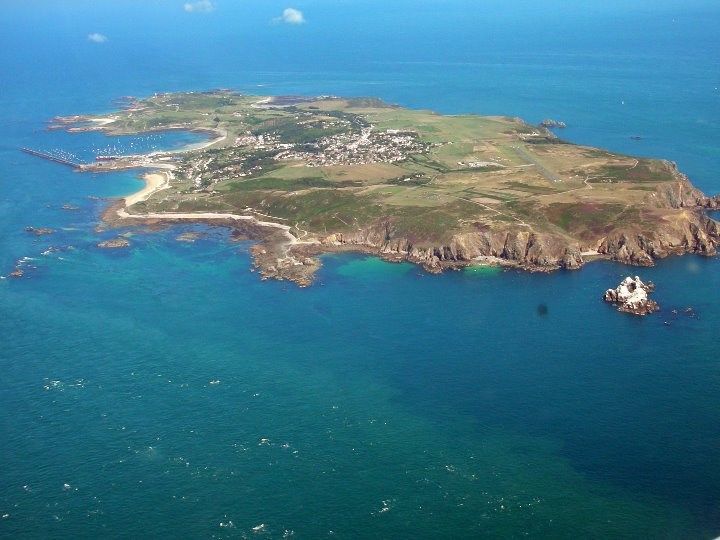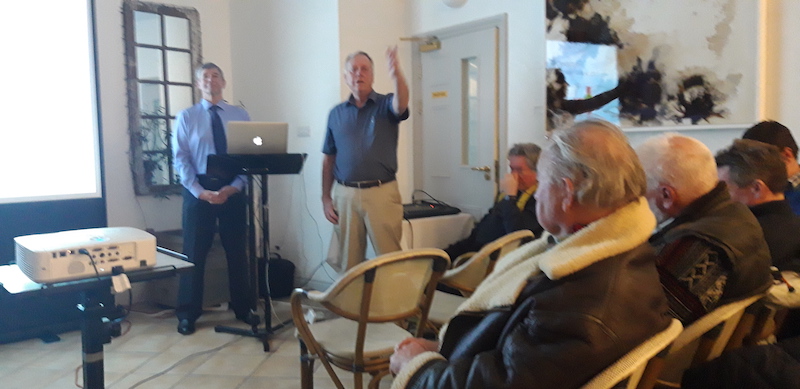

Around 40 members of Alderney's Chamber of Commerce have been given an insight into the under-review 1948 Agreement between the island and Guernsey.
Newly elected politician David Earl put on last night's talk after the States of Guernsey said a review of the post war deal – which obliges Guernsey to provide essential services like health, education and policing in return for residents' income tax – was urgently required.
Since the 1990s the Alderney 'account' has been indistinguishable from the cost of services to Guernsey, with the exception of losses made at the smaller island's airport.
A couple of years ago however, Alderney politicians pushed for a breakdown of income and cost to Guernsey to introduce greater transparency to their mutual financial relationship. It demonstrated a 'deficit', which including the alleged losses made by Aurigny in respect of Alderney came to £2.3million in 2015 and rose to £6million in 2016.
At the start of the talk he flashed up a statement from Sir Ambrose Sherwill, Bailiff of Guernsey in 1948, which gave weight to the argument frequently made by Guernsey deputies that the deal was only ever meant as a stopgap while Alderney staggered to her feet post war. The eventual aim was that she become 'self supporting' and 'not merely a permanent poor relation of Guernsey'.
"Until the mid 90s we paid our way, if not more," asserted Mr Earl. "Arguably we were in credit."

Pictured: Alderney States Member David Earl (l) and President of the Chamber of Commerce Andrew Eggleston (r).
To redress the balance Mr Earl, who has studied small island economies across the world, said he believed more of a 'cup half full' approach to its assets was needed, in much the same way Malta had turned its fortunes around around. The island's flora and fauna, Victorian forts, talent base, potential for renewable energy and reputation as a premier jurisdiction for gambling regulation should be celebrated and exploited in a strategic way. Alderney would provide an excellent nursery for Fintech industries, as noted in a previous report by the States of Guernsey on the financial relationship, he said.
He acknowledged that since the 1948 Agreement was signed the relationship between the islands had indeed moved on. In any renegotiation – and in the original deal the parties present were the States of Guernsey, Alderney and the Ministry of Justice as it now is - Alderney needed to establish what its goals were.
He showed slides elucidating the potential options. The first, illustrated by an Alderney flag, was renegotiation of the agreement and retained independence. The second, on which flew a Guernsey flag, was a closer financial and political union with Guernsey. The third, with the Union Jack, was to go cap in hand to the Ministry of Justice and ask them to adjudicate. However, noted Mr Earl, the Ministry was usually reluctant to intervene in cases other than the complete breakdown of government.
A closer relationship with France was urged by audience member Nick Winder, as well as both bailiwicks. Another audience member asked if the renegotiation was being driven solely by Guernsey. The MoJ had a duty to broker any new deal, he insisted. David Griffiths, a retired international business negotiator, said every resident could help promote a more prosperous, independent Alderney.
"What we can all do to help is talk up Alderney and focus on it's many positive aspects," he said. "We need to tell every visitor about the many wonderful things we have here and not the things that we don't."
Comments
Comments on this story express the views of the commentator only, not Bailiwick Publishing. We are unable to guarantee the accuracy of any of those comments.